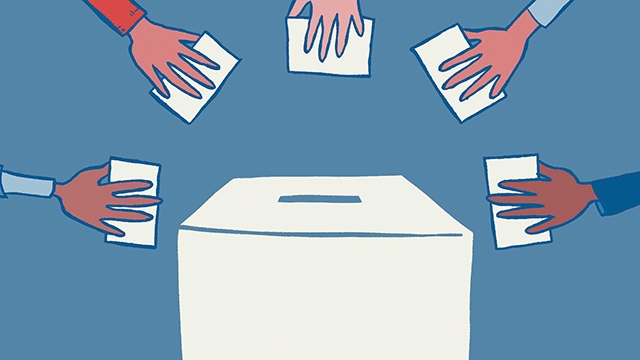Voting Makes a Difference, Right?
Op-Ed
We want democracy because there is nothing better to want. I have always wondered why a country being governed by the whole population is a smart thing to do. Plato, one of the wisest men in history, was seriously concerned that democracy stood in opposition to expertise, which means that the rule of people is not enough to manage the nation effectively. Human society has a nasty feature of perennially being divided on many different issues, one of them being a division into rich and poor.
In a democracy, as Aristotle bequeathed us, the destitute have more political power than the wealthy because there are more of them and the will of the majority is higher and more influential than the will of the minority. So, let’s say the democratic rule is the rule of the poor. The rich have only a limited say in ruling a country. Formally, of course! And nobody knows whether this is fair or unfair. In the representative democracy, the bottom-line is usually reached via voting – the public vote is a decision maker, but some of the most civilized personalities of the past exhibit concern about the relevancy of voting in general. For instance, the universally famous and beloved Mark Twain once jovially commented: ‘If voting made a difference, they wouldn’t let us do it’.
If we follow into the footsteps of this genius’ political philosophy, we might arrive at a funny conclusion that it makes no difference what kind of people are propelled into Georgia’s legislative body with the help of a public vote. Why, then, this uproar concerning the change of the extant electoral system? We’ve been killing ourselves, and each other too for that matter, looking for a better instrument to vote with, as if this is the way out for a nation which has found itself in a multifaceted complicatedness, including economy, education, consumer prices, public health, environmental pollution, currency fluctuation and what not. Nevertheless, we want to be totally dipped in a bitter political narrative, not the narrative that makes money and gives us a little respite.
Fine, let it be voting this time: the only electoral system that might be usefully practicable would probably be the system that successfully provides for putting into Parliament the wisest men and women of the nation, the individuals who have relevant education, proficiency, character and desire to enter this most responsible servitude of the nation, totally excluding accidental membership in the legislature, occurring thanks to a party affiliation.
How could this be done? Here is the simplest and clearest of the answers: a) by politically educating people so extensively that they eventually feel themselves as enlightened electors who can make the best choice via a ballot box in favor of the nation, and who knows the price of his or her vote when it comes to the future of the country and the fate of their children in that country; b) by giving a chance for the crème de la crème of the nation to run for office, those with enough lore and ruling qualification under their belt; c) by instituting a stable and durable government system, including the electoral one, adamantly based on the principle of checks and balances, which will last for centuries, as the American people have managed to do it: they are still successfully operating with a 240 year-old Law of the Land; d) by helping our people love and trust our Constitution; e) by methodically bringing up the younger generation to refuse to lie in the electoral process, and who believe that truth is the only guarantor of rightful development.
If voting is indispensable because we are living in a democracy, it should at least be correctly calculated by every single voting individual. If this is feasible, then the funny and benignly cynical comment by the already mentioned great American could possibly be reconsidered, and even altered: voting makes a difference, that’s why they let us do it.
By Nugzar B. Ruhadze
Image source: purdue.edu












